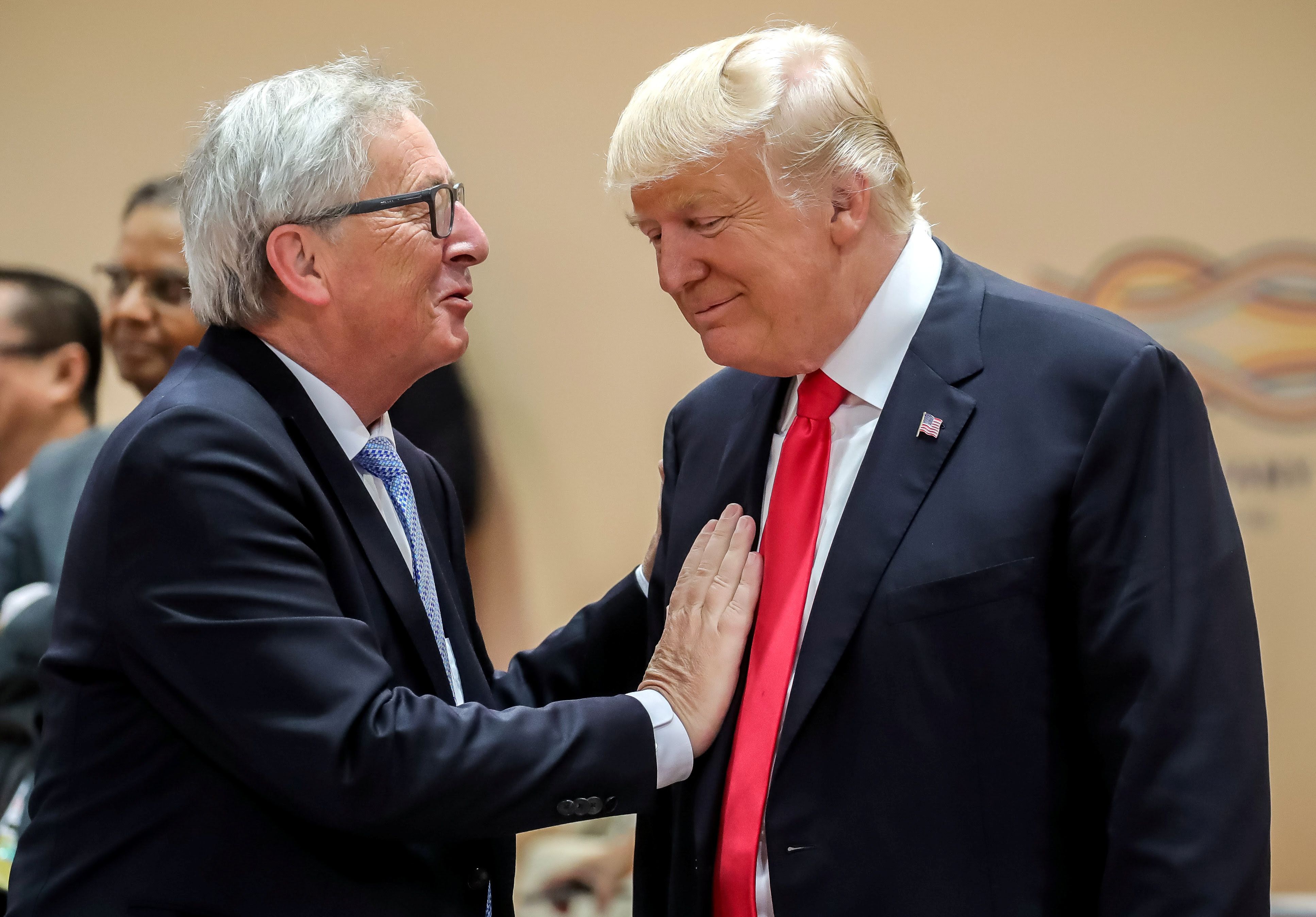Today, European Commission President Jean Claude Juncker, who oversees the bloc’s executive body, heads to Washington for a last ditch effort to resolve the EU’s ongoing trade dispute with the US. After President Trump’s disruptive performance at the NATO summit in Brussels two weeks ago, America’s European allies aren’t holding their breath for a grand bargain.
But as Gabe explains, unlike security, where the US is by far the world’s leading power, trade is one area where America no longer holds an unequivocal upper hand.
The global economy is more of a three-sided contest between the US, EU, and the China — who, respectively, make up around 15, 16, and 19 percent of global GDP in 2018 (accounting for purchasing power).
What’s more, the US is more vulnerable to EU retaliation than President Trump likes to think. The EU plays an important role as the world’s biggest consumer of services, a sector that has become crucial to US growth. In 2017, US services exports to the EU were more than four times larger than those to China. The decision to move ahead with proposed tariffs on European automobiles could spark serious economic blowback against portions of the US economy so far unscathed by Trump's trade actions. The administration’s recent move to tee up $12 billion in aid to farmers hurt by the ongoing trade spat with China shows the US isn’t invincible.
While Juncker arrives in DC with a plan for progress, he’s also likely resigned to the prospect that a breakthrough may well not be forthcoming. For his part, President Trump tweeted out yesterday that “tariffs are the greatest!”
But for average Americans, the outcome of today’s discussion is far more consequential than haggling over NATO spending quotas or European fines on Google. They could soon be forced to confront the painful reality that, at least economically, America is no longer the unrivaled top dog.
